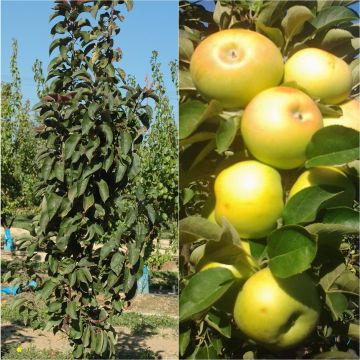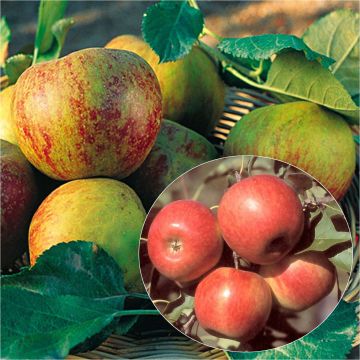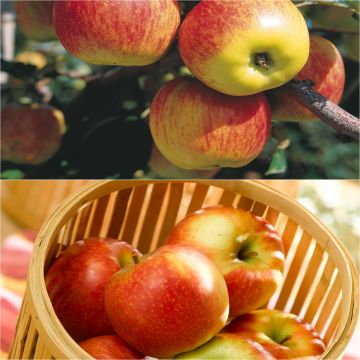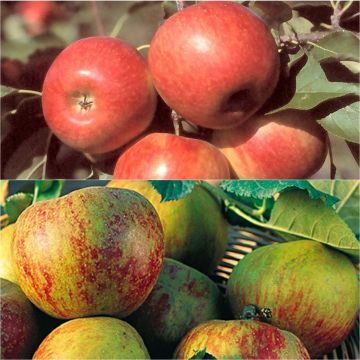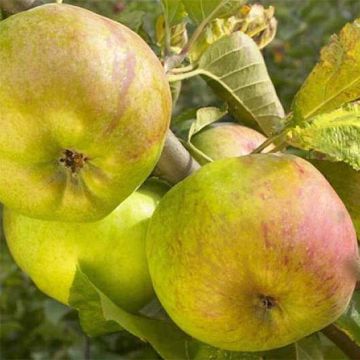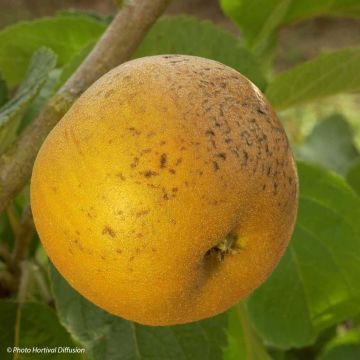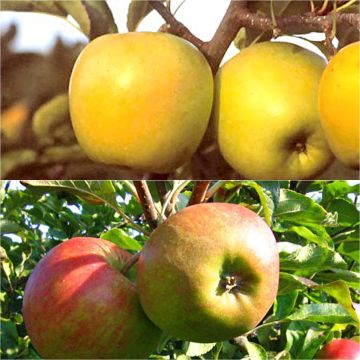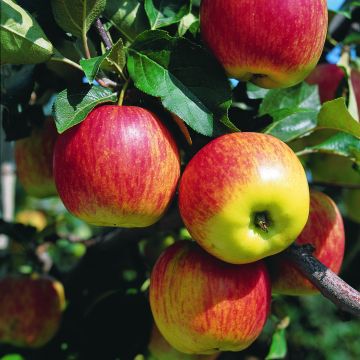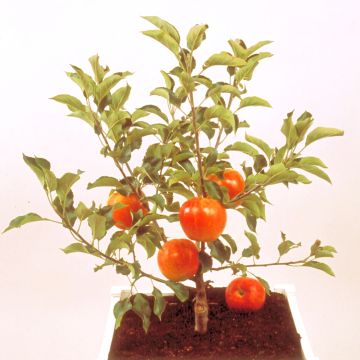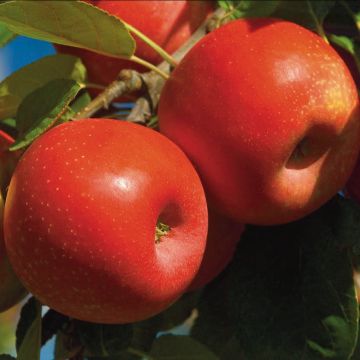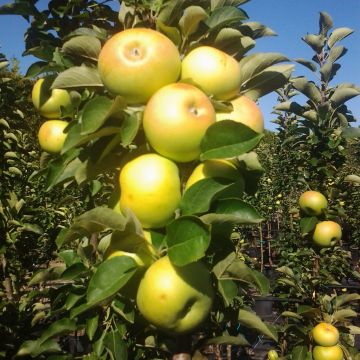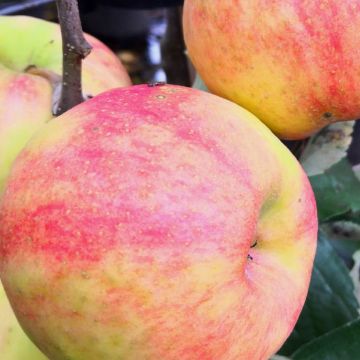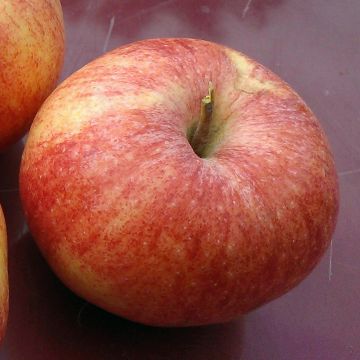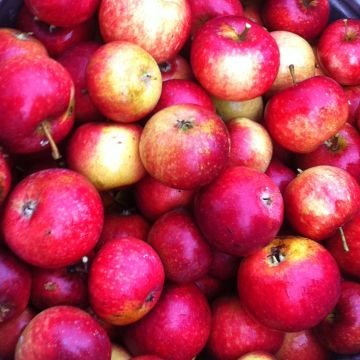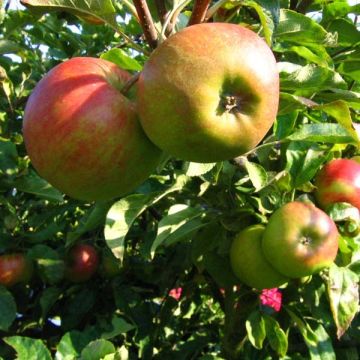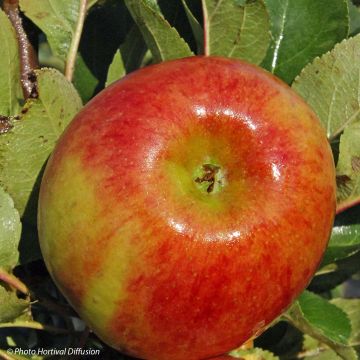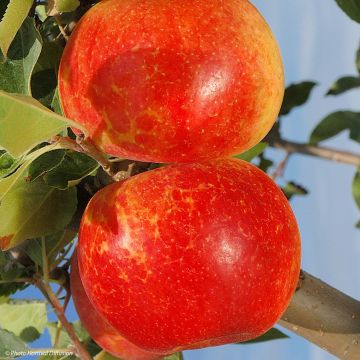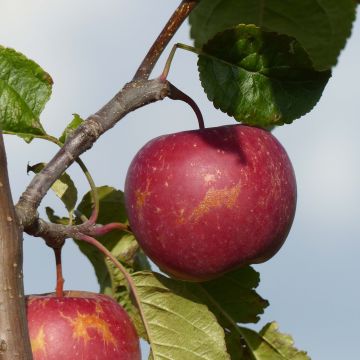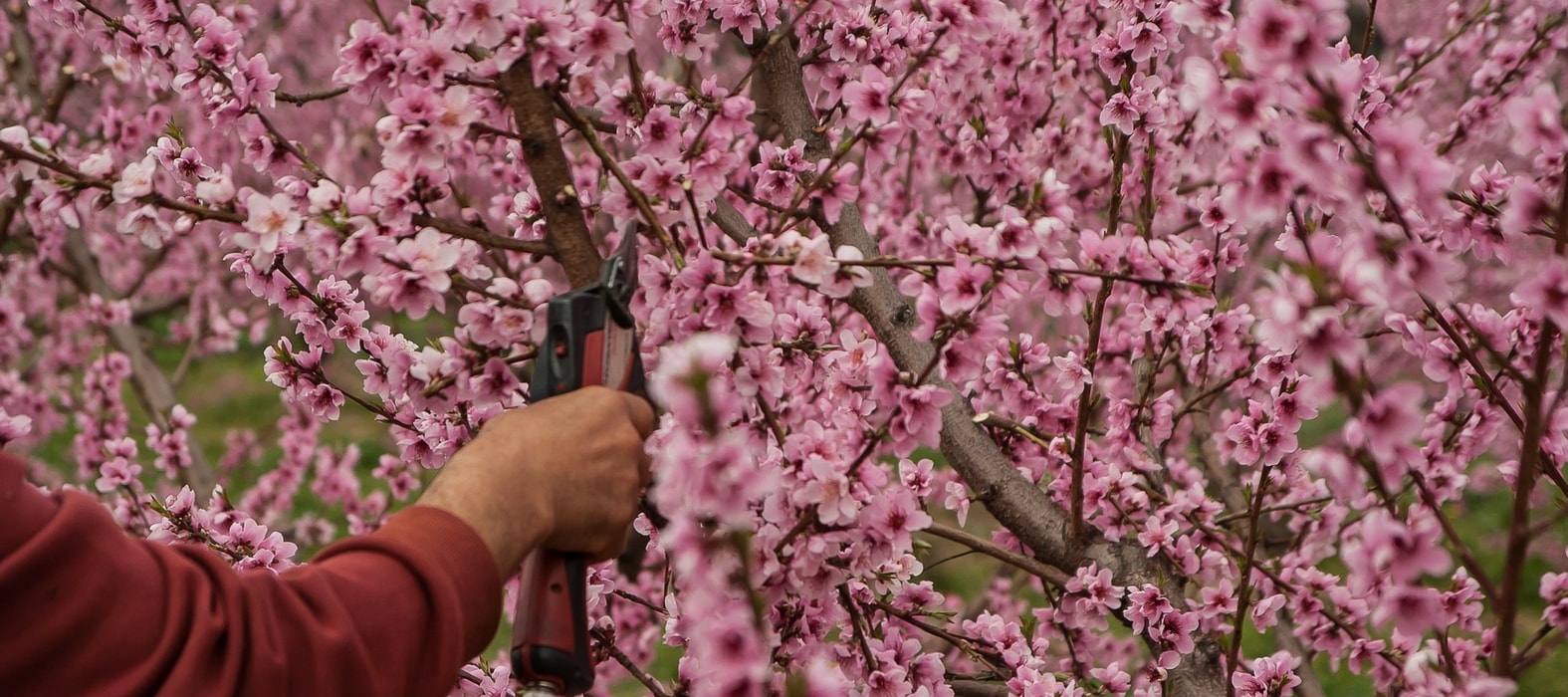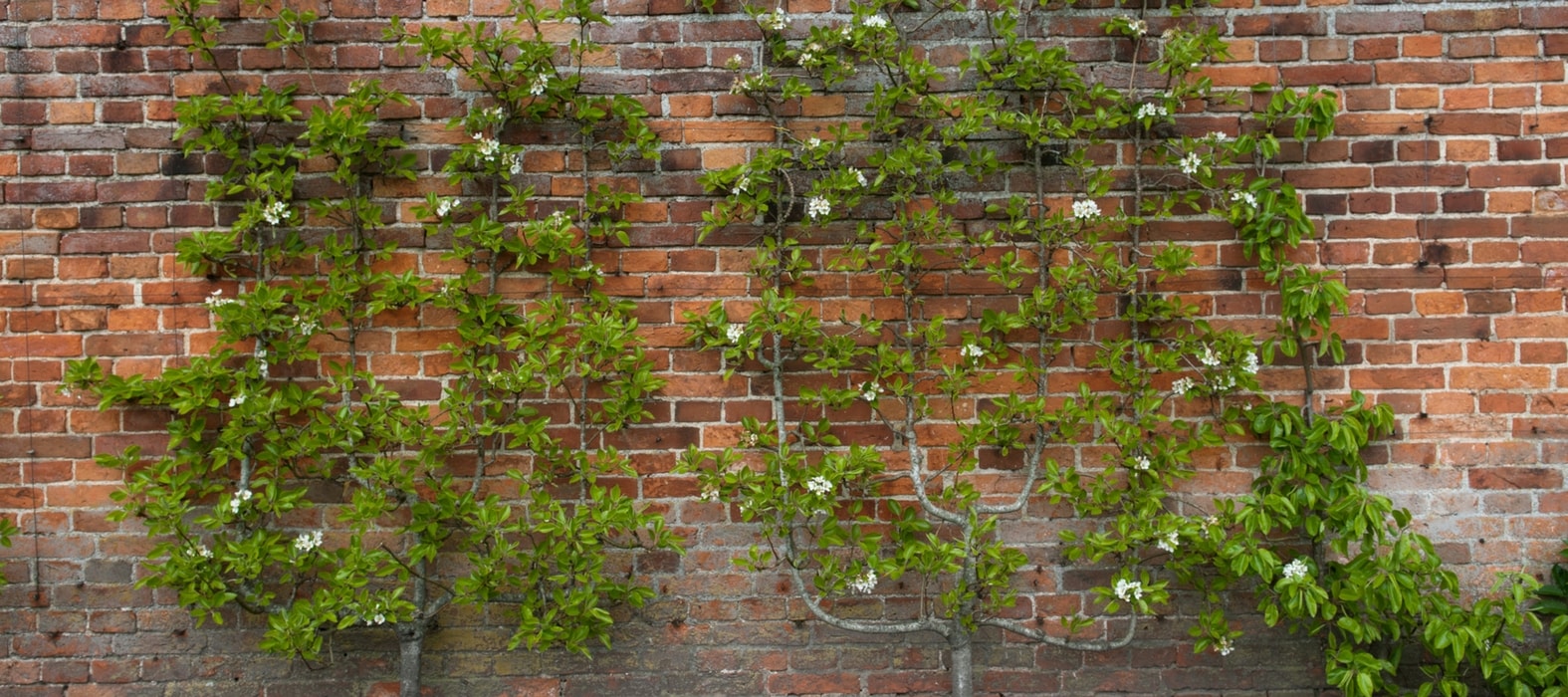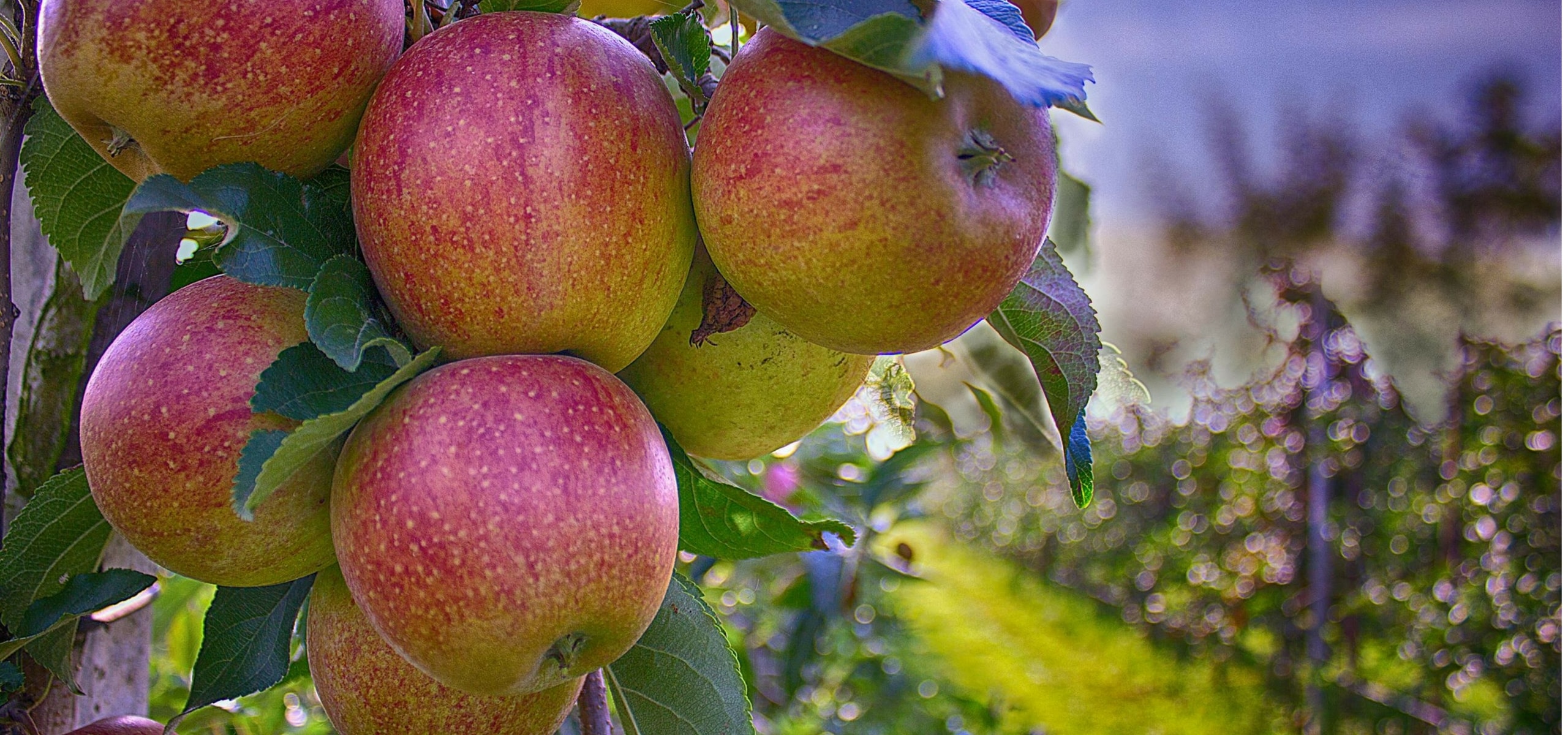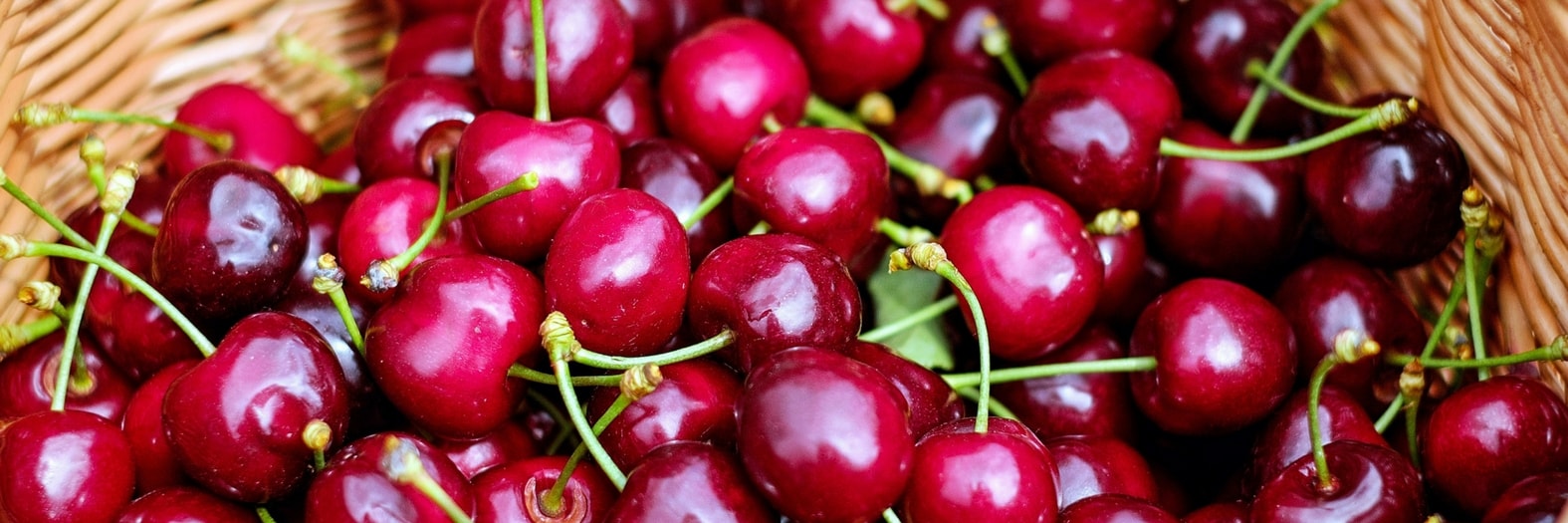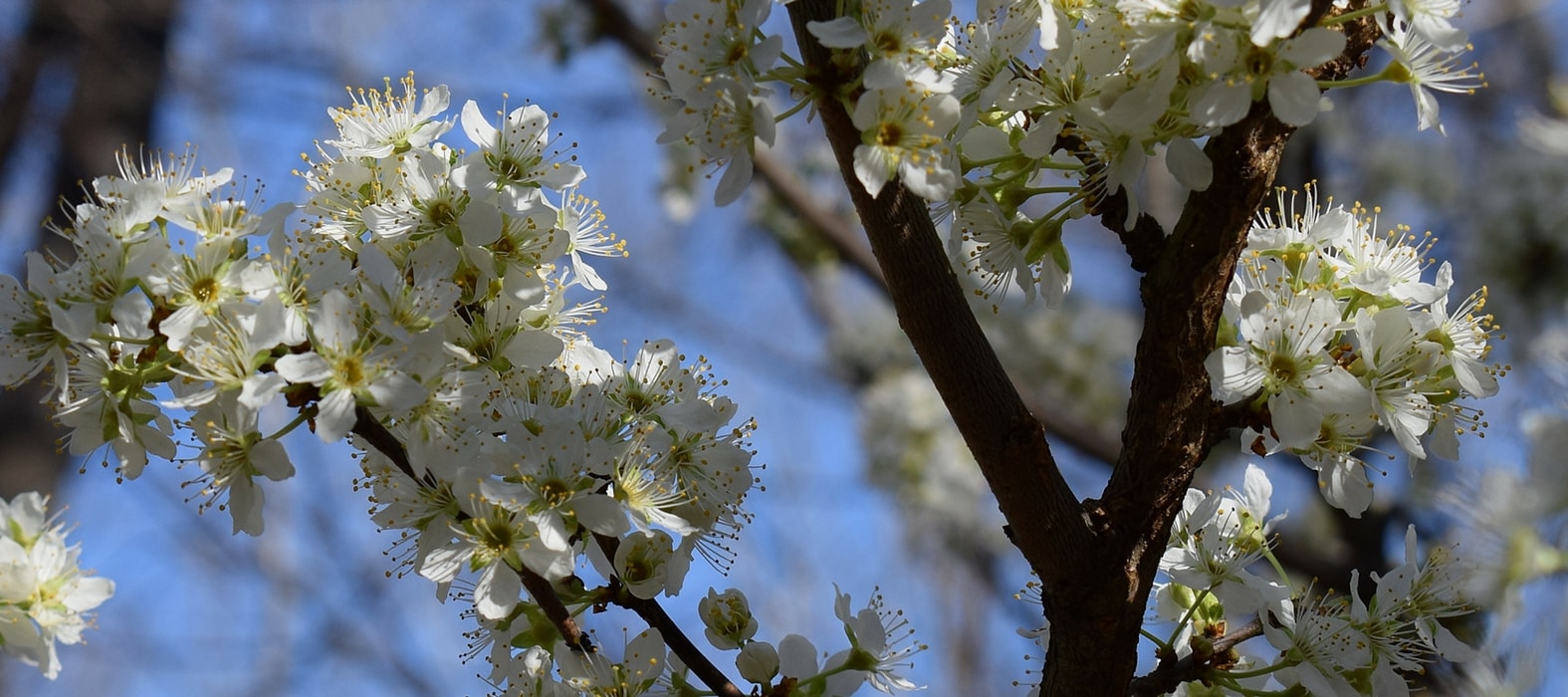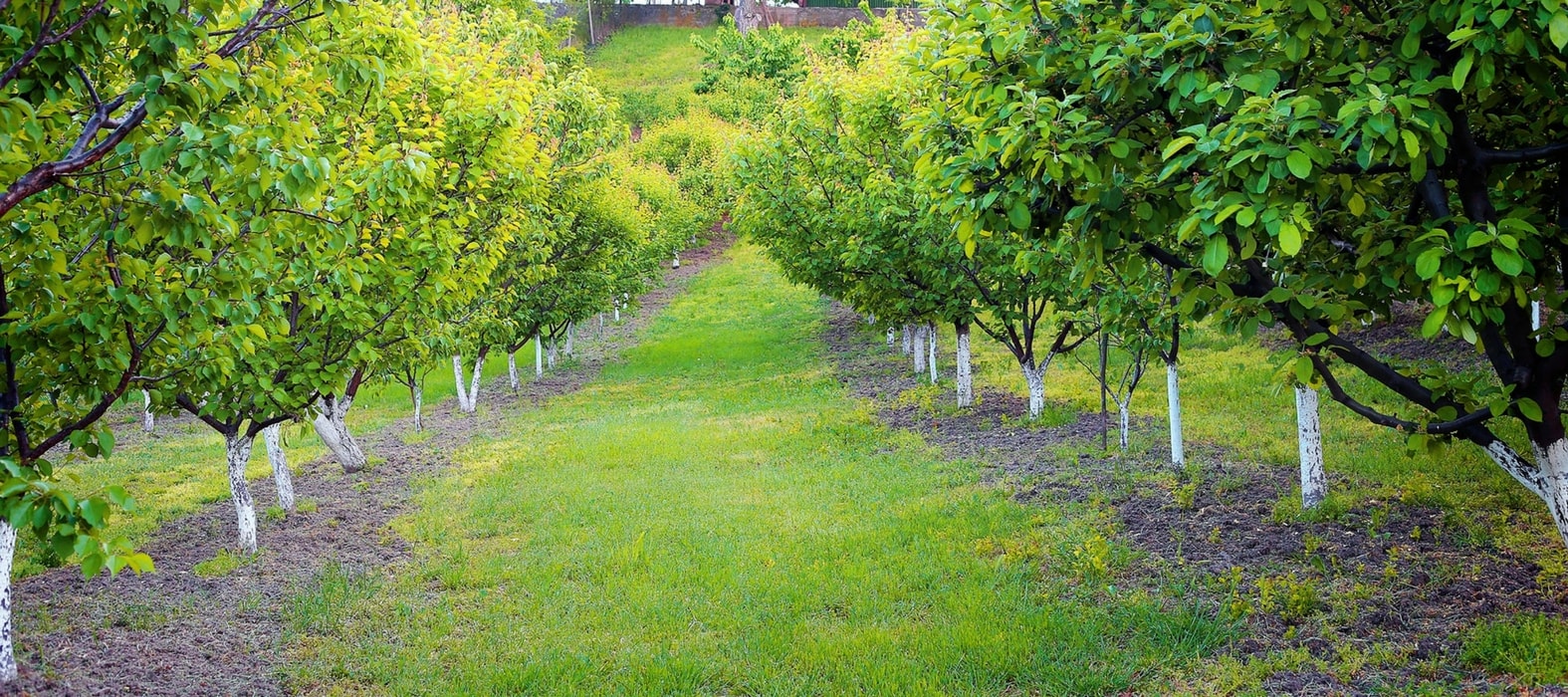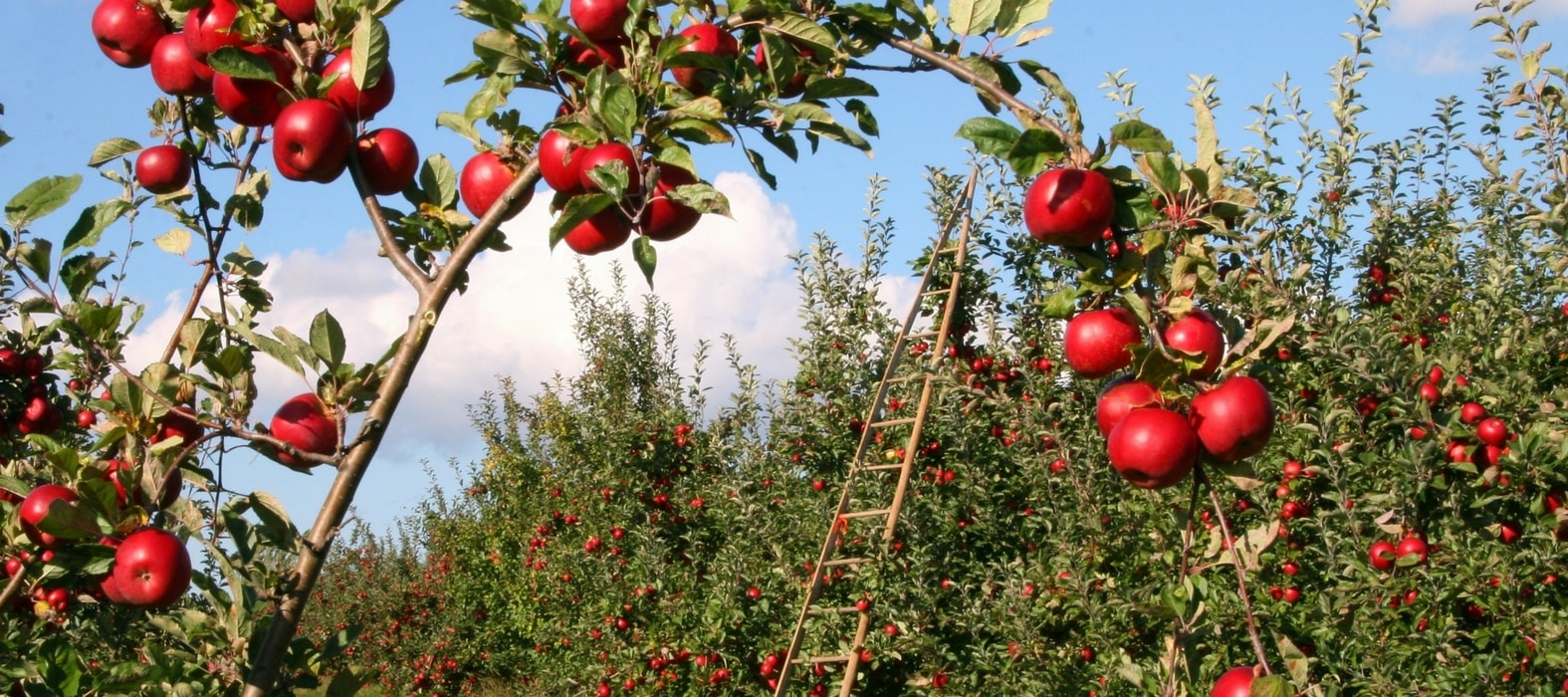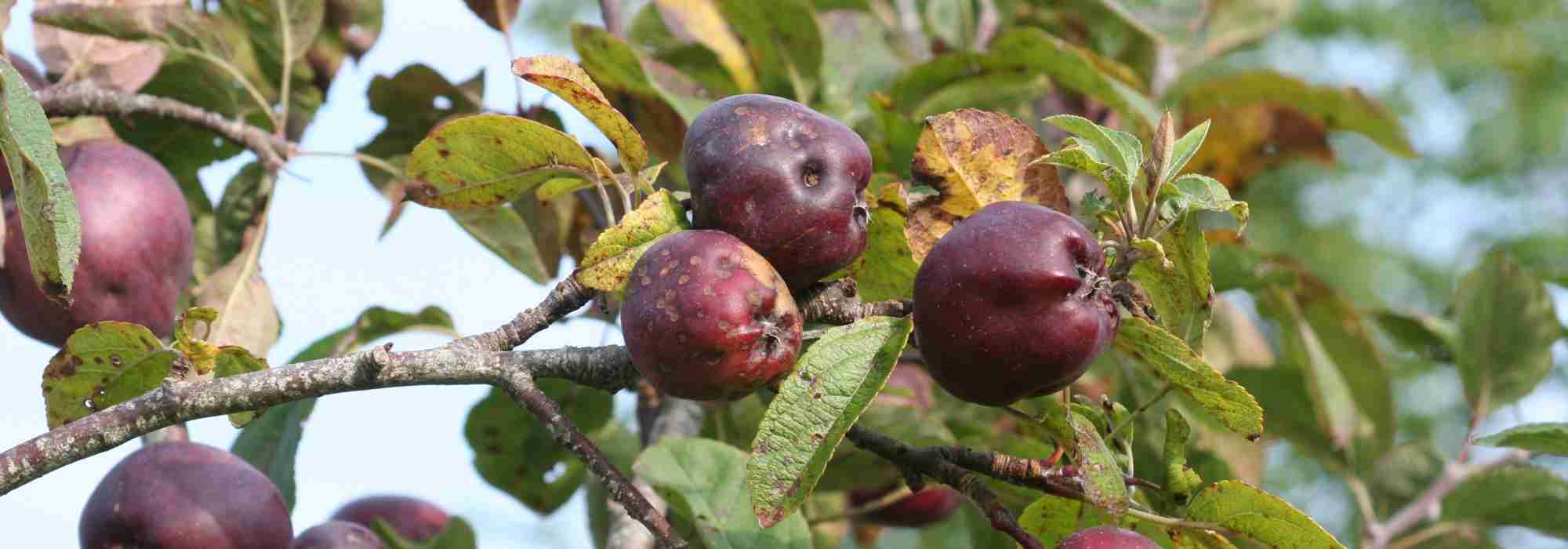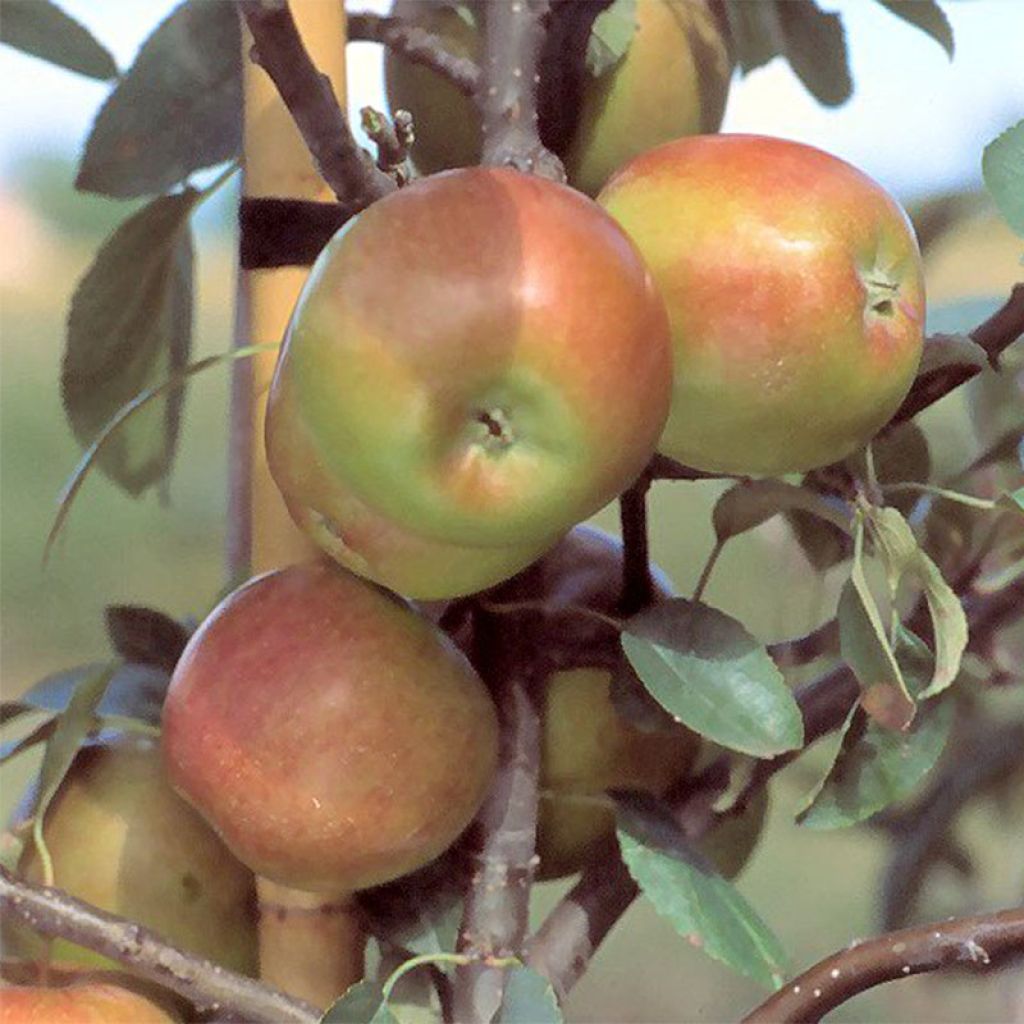

Pommier Priam - Malus domestica
Apple Tree Priam - Malus domestica
Malus domestica Priam
Apple, Orchard apple, Table apple, Cultivated apple
Special offer!
Receive a €20 voucher for any order over €90 (excluding delivery costs, credit notes, and plastic-free options)!
1- Add your favorite plants to your cart.
2- Once you have reached €90, confirm your order (you can even choose the delivery date!).
3- As soon as your order is shipped, you will receive an email containing your voucher code, valid for 3 months (90 days).
Your voucher is unique and can only be used once, for any order with a minimum value of €20, excluding delivery costs.
Can be combined with other current offers, non-divisible and non-refundable.
Why not try an alternative variety in stock?
View all →This plant carries a 6 months recovery warranty
More information
We guarantee the quality of our plants for a full growing cycle, and will replace at our expense any plant that fails to recover under normal climatic and planting conditions.
Description
The 'Priam' Apple Tree is a vigorous variety with rapid fruiting. It produces fruits with an average diameter of 7.5 to 8 cm (3in) which are yellow with red stripes, and conical in shape. Their flesh is juicy, crisp and very pleasant. The early harvest takes place in September, and the fruits can be stored in a cool place until November. The 'Priam' Apple Tree is not self-fertile.
The apple tree is native to Europe where its presence has been documented since ancient times. The 'Priam' Apple Tree is a variety selected in 1951 at the Perdue Agricultural Experimental Station in Lafayette, Indiana, USA. It is the result of cross-breeding between a variety of 'Golden Delicious', PRI 14-126, which has genes for scab resistance, and the 'Jonathan' variety.
The 'Priam' Apple Tree has an upright habit, giving it a very elegant and slender appearance. It has regular and uniform productivity. Thinning may be necessary to prevent small fruit size and diseases.
Its foliage consists of very large, ovate, slightly hairy leaves that are dark green on top and whitish-green underneath, with deeply toothed edges.
The white blossom occurs from late March to mid-April and is not susceptible to frost. Therefore, apple trees are suitable for cultivation in all regions. It is self-sterile, the presence of apple trees with flowering at the same time is necessary, 'Golden Delicious' and 'Granny Smith' are the most suitable varieties.
Fruiting begins in September. The fruits can be stored in a cool place (cellar or refrigerator) until November. The fruits, with an average diameter of 7.5 to 8 cm (3in), are yellow with red stripes and conical in shape. Their flesh is juicy, crisp and very pleasant.
These apples are particularly good for eating fresh. They can also be used in pastries, jams, jellies, or in savoury dishes, paired with cheeses, for example.
Apple Tree Priam - Malus domestica in pictures
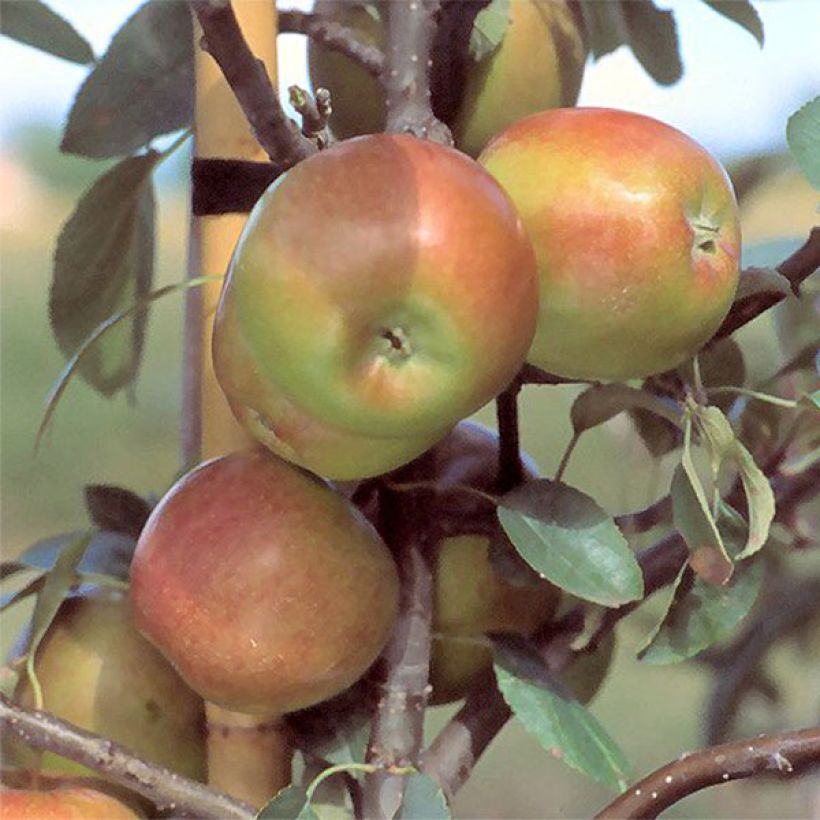

Plant habit
Fruit
Flowering
Foliage
Botanical data
Malus
domestica
Priam
Rosaceae
Apple, Orchard apple, Table apple, Cultivated apple
Cultivar or hybrid
Other Apple trees
View all →Planting and care
Choose a sunny location for your 'Priam' Apple tree, the soil can be slightly chalky or acidic but not excessively. Dig a large planting hole at least 3 times the volume of the root ball. Add organic material (topsoil, compost...) and a base fertiliser such as crushed horn. Do not bury the grafting collar. Stake if necessary. Water abundantly, even in winter, even if it rains. Fruit trees are best planted between October and March, outside of the freezing period. Container-grown plants can be planted all year round except during periods of high heat or frost.
You can add a small handful of wood ash, rich in potash, during winter, this will improve fruiting. Watch out for possible aphid attacks during the season. A white powdery fungus, powdery mildew, may appear on the leaves in summer, but this does not harm fruit development in gardens. Harvest takes place in September. Only keep picked fruits. Apples should be stored with the stem downwards, on shelves or in crates in a completely dark, dry, cool, frost-free place.
Planting period
Intended location
Care
Planting & care advice
This item has not been reviewed yet - be the first to leave a review about it.
Haven't found what you were looking for?
Hardiness is the lowest winter temperature a plant can endure without suffering serious damage or even dying. However, hardiness is affected by location (a sheltered area, such as a patio), protection (winter cover) and soil type (hardiness is improved by well-drained soil).

Photo Sharing Terms & Conditions
In order to encourage gardeners to interact and share their experiences, Promesse de fleurs offers various media enabling content to be uploaded onto its Site - in particular via the ‘Photo sharing’ module.
The User agrees to refrain from:
- Posting any content that is illegal, prejudicial, insulting, racist, inciteful to hatred, revisionist, contrary to public decency, that infringes on privacy or on the privacy rights of third parties, in particular the publicity rights of persons and goods, intellectual property rights, or the right to privacy.
- Submitting content on behalf of a third party;
- Impersonate the identity of a third party and/or publish any personal information about a third party;
In general, the User undertakes to refrain from any unethical behaviour.
All Content (in particular text, comments, files, images, photos, videos, creative works, etc.), which may be subject to property or intellectual property rights, image or other private rights, shall remain the property of the User, subject to the limited rights granted by the terms of the licence granted by Promesse de fleurs as stated below. Users are at liberty to publish or not to publish such Content on the Site, notably via the ‘Photo Sharing’ facility, and accept that this Content shall be made public and freely accessible, notably on the Internet.
Users further acknowledge, undertake to have ,and guarantee that they hold all necessary rights and permissions to publish such material on the Site, in particular with regard to the legislation in force pertaining to any privacy, property, intellectual property, image, or contractual rights, or rights of any other nature. By publishing such Content on the Site, Users acknowledge accepting full liability as publishers of the Content within the meaning of the law, and grant Promesse de fleurs, free of charge, an inclusive, worldwide licence for the said Content for the entire duration of its publication, including all reproduction, representation, up/downloading, displaying, performing, transmission, and storage rights.
Users also grant permission for their name to be linked to the Content and accept that this link may not always be made available.
By engaging in posting material, Users consent to their Content becoming automatically accessible on the Internet, in particular on other sites and/or blogs and/or web pages of the Promesse de fleurs site, including in particular social pages and the Promesse de fleurs catalogue.
Users may secure the removal of entrusted content free of charge by issuing a simple request via our contact form.
The flowering period indicated on our website applies to countries and regions located in USDA zone 8 (France, the United Kingdom, Ireland, the Netherlands, etc.)
It will vary according to where you live:
- In zones 9 to 10 (Italy, Spain, Greece, etc.), flowering will occur about 2 to 4 weeks earlier.
- In zones 6 to 7 (Germany, Poland, Slovenia, and lower mountainous regions), flowering will be delayed by 2 to 3 weeks.
- In zone 5 (Central Europe, Scandinavia), blooming will be delayed by 3 to 5 weeks.
In temperate climates, pruning of spring-flowering shrubs (forsythia, spireas, etc.) should be done just after flowering.
Pruning of summer-flowering shrubs (Indian Lilac, Perovskia, etc.) can be done in winter or spring.
In cold regions as well as with frost-sensitive plants, avoid pruning too early when severe frosts may still occur.
The planting period indicated on our website applies to countries and regions located in USDA zone 8 (France, United Kingdom, Ireland, Netherlands).
It will vary according to where you live:
- In Mediterranean zones (Marseille, Madrid, Milan, etc.), autumn and winter are the best planting periods.
- In continental zones (Strasbourg, Munich, Vienna, etc.), delay planting by 2 to 3 weeks in spring and bring it forward by 2 to 4 weeks in autumn.
- In mountainous regions (the Alps, Pyrenees, Carpathians, etc.), it is best to plant in late spring (May-June) or late summer (August-September).
The harvesting period indicated on our website applies to countries and regions in USDA zone 8 (France, England, Ireland, the Netherlands).
In colder areas (Scandinavia, Poland, Austria...) fruit and vegetable harvests are likely to be delayed by 3-4 weeks.
In warmer areas (Italy, Spain, Greece, etc.), harvesting will probably take place earlier, depending on weather conditions.
The sowing periods indicated on our website apply to countries and regions within USDA Zone 8 (France, UK, Ireland, Netherlands).
In colder areas (Scandinavia, Poland, Austria...), delay any outdoor sowing by 3-4 weeks, or sow under glass.
In warmer climes (Italy, Spain, Greece, etc.), bring outdoor sowing forward by a few weeks.






























